The latest report from the IPCC on the climate crisis is apocalyptic in its language. It’s clear that 1.5 degrees warming is a disaster, and we are on our way to 2 and even 3 or more degrees warming – which is beyond catastrophic. Peter Carter joins Paul Jay to review the report.
Paul Jay
Hi, I’m Paul Jay. Welcome to theAnalysis.news. In a few seconds, we’ll be talking about the IPCC [Intergovernmental Panel on Climate Change] report on climate change. It’s even more alarming than previous reports, although not as alarming as a lot of scientists think it should be. Please don’t forget there’s a donate button; subscribe and share. Most importantly, get to our website and get on our email list. We never know if you’re watching on YouTube or some of the other platforms; what we’re doing might be suppressed. It already has been more than once on YouTube. The safest thing, at least for now, is to get on the email list. Back in a few seconds to talk about the coming soon, apocalyptic, catastrophic, all the words about the climate crisis.
Lost, of course, in all the reporting on the crisis or conflict in Ukraine was the IPCC report released on February 28, which was, as I said a few seconds ago, even more alarming than previously alarming reports. One of the most important things to come out of this report is nothing new, but it doesn’t often break through in mainstream media coverage. Even if we’re successful at stabilizing climate at 1.5°, I say that knowing that we’re not going to. There is no reason to think the way the world is headed that we will stabilize at 1.5°. Even if we did or even if we stabilized at 2°, somehow, that’s okay. Well, it’s not.
From this report and other research, it’s clear 1.5° is significantly worse in terms of extreme climate events than where we are now. We’re only at about 1.2°-1.3° now. We’re quickly getting towards 1.5°, and already we’re seeing extreme weather. By 2°, much of the world is already in severe crisis. The truth is we’re on our way to 3° and 4°.
Now, I understand why the Ukraine conflict swamped this story, but there is no question this story is more important than the Ukraine story. As threatening as Ukraine is, short of nuclear war, it isn’t doomsday. Of course, there are doomsday machines in Russia and the United States. The nuclear threat is very serious in terms of the Ukraine conflict.
The climate threat is absolute. It’s happening. We’re in it. We’re heading more and more quickly into very, very dangerous waters. So even though we spent all week on the Ukraine crisis, there’s no way we could let this week end— even though it’s Friday, and we’re probably going to publish this on the weekend or Monday. That said, we need to talk about this IPCC report.
Now joining us to do exactly that is Peter Carter. He’s a retired family physician. He practiced medicine in England, then in Canada. He, for many years, has been very focused on the climate crisis. He’s the Founding Director of the Canadian Association of Physicians for the Environment, more recently, a Founder of Climate Emergency Institute. As I said, Peter has been following global warming climate change research since 1988. He was also an expert reviewer for the Intergovernmental Panel on Climate Change (Fifth Climate Assessment in 2014) and the IPCCs 2018 special report. Also, in 2018, Peter published a book, Unprecedented Crime: Climate Science Denial and Game Changers for Survival, which he co-authored with Elizabeth Woodworth.
Thanks very much for joining us, Peter.
Peter Carter
Thank you, Paul. Good to be with you.
Paul Jay
So we’ve asked you to help us understand what’s in the report. So if you could, first of all, review the highlights and add your own commentary as we go. As we go, we’ll talk more about it. You’ve been focused on this issue for some time. 1.5° is not safe, which also seems to be one of the highlights of this report, over to you.
Peter Carter
Thanks for reminding me about the unprecedented climate crime book. This reminds me of the UN [United Nations] Secretary-General, in fact, when he gave his presentation on the sixth IPCC Assessment working group two, which is on the impact. He stated that— and I’m very much in agreement with him on this— “the inaction now has reached a level of crime,” and it definitely has.
Now, this report is very different from previous reports in two ways. The content is very different, and so is its language. As you’ve already indicated, Paul, we have now switched to things that might happen or risks that might happen to a litany of scientific evidence and research findings of what is happening. That’s a huge difference. Also, with regards to the language, this report is really unprecedented. The Chair of the IPCC, Hoesung Lee, at the press conference, described the working group two report as a dire warning of the consequences of inaction. No IPCC scientist, or certainly no IPCC Chair, has never ever said anything even approaching that— a dire warning of what’s going to happen to us with continued inaction. He said that it shows, the report shows, and it certainly does, that climate change is a grave and mounting threat to our well-being and to the planet.
So there’s more in the press release which I can share. It’s a powerful press release as well. The scientific evidence is unequivocal now, unequivocal that climate change is threatening our total human population’s well-being and the planet. So that is in this report. The shorter version of the scientific report calls a summary for policymakers. And get this, any further delay in concerted global action will miss a brief and rapidly closing window to secure a livable future.
So this fits with what the Chair, Dr. Lee, stated in COP26, the Glasgow Climate Conference, and in fact, what he stated in the Madrid Conference in 2019. Anyway, emissions have to decline immediately. This ‘immediately’ is in this impacts report. It was in the working group one science report that emissions had to go down immediately. It’s in the impacts report that emissions have to go down immediately. So this is the absolute bottom line. If this happens, and this is what this report says and the press conference says, if this doesn’t happen, we’ve done ourselves in. We really are done for.
I totally agree with you; 1.5 ° C is absolutely, totally out of the window. I mean, trying to get that across, and it’s absolutely ridiculous and an insult to science. For scientists, let alone policymakers to say, or let alone give them an impression that we can still limit to 1.5° C. We cannot, and we will be there by 2030.
James Hansen, who still puts out regular scientific briefs, says that 1.5° C is bull shit. We will be hard put to limit to 2° C. And 2° C, really we’ve always known, 2° C is the end of the world. Literally! We had a 2° C limit from the mid-90s, right up to the 1.5° C 2018 report when people, really the scientists, completely focused on the 1.5° limit. And, of course, that was introduced eventually in the Paris Agreement of 2015.
So more quotes from this awful report. It’s absolutely awful. People’s health and livelihoods, property, critical infrastructure, energy, transportation systems, they are all now being adversely impacted by the heatwaves, the storms, the drought and the flooding. That is going to get very much worse. Even when we get to 1.5°C, we are then on a different planet. 1.5°C, we enter a totally disastrous degraded planet Earth.
Paul Jay
What does the U.S. and Canada look like at 1.5°?
Peter Carter
Well, U.S. and Canada are losing. Even Canada—
Paul Jay
Which is where you are. You’re off in Victoria. You’re in Canada.
Peter Carter
Yeah. But the answer to your question is heatwaves and drought. We experienced a very nasty taste of that very recently. The heatwaves and the drought to the entire Western third of the United States is going to get worse. The forest fires which have ravaged the West Coast there, they are going to get worse. And not just worse, they’re going to get worse by multiples. That’s what this report says. And we, of course, are a big breadbasket for the world region; grains that we grow in the United States and up into Canada. In the words of UN Secretary-General, that’s going to be clobbered. This working group two report has the research and stressed that at 1.5° C, we will have multiple breadbasket failures in the world. So we are looking at devastation.
Paul Jay
I interviewed one of the climate scientists that worked on the last IPCC report. I think he was a lead on one of the chapters in the last report. He was an author of this report. He was saying at 2°, most of the agriculture in the middle of America, which is where most of it is, is essentially gone.
Peter Carter
That’s right. That’s what this report has. It’s gone. 2° C is the end of the world temperature.
Paul Jay
Well, the end of human society as we know it. It’s not like nuclear winter. There’ll still be some life. What there will be is millions and millions of people that live in the south having to get north.
Peter Carter
I’m going to disagree with you there. It is the end of the world. It’s way worse than nuclear winter.
Paul Jay
Two degrees?
Peter Carter
Pardon?
Paul Jay
Two degrees?
Peter Carter
Two degrees. Two degrees. Because 2° has always been known as the tipping point of all tipping points, it’s in here. It’s in the science. At 2° C, we trigger 8-9-10 powerful sources of amplifying feedback, tipping points. And for the first time, or in the strongest manner, that’s in this report: amplifying feedback and the consequences of current and future global warming. Current and future. This report says that these feedbacks are already operating, and they’re going to get worse.
Paul Jay
And the point there is, once you get to 2°, you actually can’t stop it from getting to 3°.
Peter Carter
Absolutely.
Paul Jay
The tipping point is such that— from the last interview I did with this climate scientist, it’s not like there’s an incremental amount of extreme climate events between 2° and 3°. It’s at least a doubling, if not a tripling, between 2° and 3°.
Peter Carter
Yeah, but very few people are going to see 3°, and nobody’s going to see 4°.
So just listen to this from this IPCC report. In high carbon ecosystems, that’s where all the carbon feedbacks come from, of course. These impacts, these feedback impacts, have already been observed and are projected to increase with every additional increment of global warming. This is the absolute most important thing this working group did report. The examples it gives that are going to happen are increased wildfires, mass mortality of trees, carbon, and carbon drying of peatlands, a huge amount of carbon in the peatlands, both subarctic and tropical. We’re talking massive amounts of carbon here and thawing of the permafrost they have that in. The permafrost already is emitting all three big greenhouse gases. It’s emitting methane, as we all feared decades ago, would. It’s emitting way more carbon dioxide than anybody anticipated. A lot of C02. It’s also emitting a lot of nitrous oxide.
So this was in the science of the famous Hot House Earth Paper that came out in 2018, and they had all these tipping points. They said in the paper if we’re not there already if we don’t respond to this emergency, we are going to be there for sure.
I mean, I studied the paper closely, and every single one of those tipping points— and they include actually a major tipping point I wasn’t aware of. The major tipping point, the biggest one, is the failure of our land carbon sink. We’re absorbing at least 30% of the carbon that we’re emitting. It used to be thought that it was 25%, but it’s more even than that. The Amazon, of course, is tipping. The Amazon is emitting more carbon now than it’s absorbing. You can see this dramatically on the satellites. The Europeans have been developing for years a great satellite resource which is able to get the emissions down to the surface so you can see where they’re coming. All-year-round the Amazon is pouring out CO2. All-year-round.
Paul Jay
There’s another piece which I learned previously, which are these predictions on the timeline 1.5° by 2030, 2° by 2050, to some extent, these estimations are artificial because there are unknowns within it. One of the big unknowns he was talking about was the ability of the oceans to absorb carbon. There are several things happening with the oceans that could dramatically change their ability to wash away a certain amount of carbon. And if that happens, all these predictions go out the window. It could all happen much sooner than we’re thinking.
Peter Carter
One of the big points that working group two makes is that everything’s happening decades and decades sooner than was ever anticipated. Things are worse. For example, the research is now worse than the research for 1.5° C reported in 2018. And heavens, that was bad enough. The situation with the feedback is definite, and it’s not been put out. I don’t think people are aware of this. Both in the working Group One report, but also in the Global Carbon Project, which is the authoritative source of all things CO2, comes out every year. Both of these reports said, and I stressed the working Group One, that the land carbon sink has started to fail. If we don’t have any emergency response, of course, it’s just going to fail more and more. It will weaken. So we will still be absorbing more CO2 by the forest, but it will be less and less and less and less. The IPCC actually had a very good diagram which showed that very well, very graphically. So as the absorption of CO2 gets less and less and less, there’s more and more CO2 left in the atmosphere.
I really have to point this out. I mean, this wasn’t in the assessment, and that’s no mistake. But everything, of course, depends on what we do, right? Everything. Whether there’s any future at all, it depends on what we do. We know that for sure. If we continue emitting any greenhouse gases, in any amount of time, we’re done for. We’ve finished ourselves, and we’re taking down all of life with us. I want to stress the acceleration that comes out in this report. Everything isn’t just increasing, it’s increasing faster. I’ve made the two quotes already. All of the impacts are coming at us faster and faster. Everything is getting worse faster. Now, of course, nobody wants to face this, but if we want to give all the children in the world any hope at all, we are all going to face it.
Paul Jay
Let me just add one thing to this, which is as alarming, apocalyptic, whatever word you want to use, this report is. It’s actually quite mitigated from what a lot of scientists wanted this report to be because 67 countries have to sign off on this report, and they negotiate every word that’s in it. All the fossil fuel-producing countries do everything they can to mitigate the language. In spite of that, this report is so alarming.
Peter Carter
Yeah, that was a fight. We know there was a fight between the scientists and the government. It was intense. However, the language, as I say, the impact got through. They have, for example, the world is going to have unavoidable multiple climate hazards and impacts over the next two decades. Everything’s going to get worse and worse for the next two decades. Even temporarily— this is how, actually, this a clever way in which they got in. You see, the government doesn’t want anybody to know that they have lost 1.5° C. The whole agenda is to keep us believing this 1.5° C disastrous danger limit is still in reach. But it’s not. The planet will be a disastrous planet. Totally different, even from today. Let alone different from the planet I’ve been growing up on, this wonderful, glorious.
Decades ago, environmentalists were writing books about how we’ve got to stop trashing the planet. You all remember that, right? We didn’t stop. We just pushed harder and harder and harder. And that’s our economy, of course, it pushes harder and harder and harder. It’s the fossil-fuel economy. The reason why the economy is fossil fuel is that fossil fuels still make the maximum amount of money for the people that have the money.
Paul Jay
The denial amongst the people that have the money is really— it’s unbelievable in a way because their own system is going to be in such chaos. Yeah, you can make a certain amount of money out of volatility, but if they thought they had global supply chain problems during the pandemic they didn’t see nothing yet. When the IPCC report came out, the stock market completely ignored it. It didn’t take down a hair because of the IPCC report. There was some volatility down and then up again and then down again over Ukraine. There was no response on the IPCC. If anything, because of Ukraine, the price of oil has gone way up, and so have the stocks of energy companies gone up. So even though the IPCC is telling us it’s precisely the product from these companies that’s going to destroy life as we know it, they’re actually doing— they’re smiling from ear to ear right now because oil is over $100 a barrel.
Peter Carter
Okay, interestingly, and I was surprised that the working group did have something on the economy. It said for the first time in an IPCC report the economy is going to lose. First time IPCC has ever said that: we will be driving the world economy down. Really, however, it’s powered, I mean, there’s no future for us with any fossil fuels. We’ve known that for 20 years at least. The only future that we have is a 100% clean energy, renewable energy, which is everlasting energy, zero-carbon energy. That’s the only future we have. I mean, I’ve been saying that for years and years and years and years. We don’t have a future with any fossil fuels because they cause CO2. CO2 lasts in the atmosphere forever, practically. Heating up the planet, heating the oceans, all the extreme weather events and acidifying the oceans. The oceans are in a state of collapse today.
And to go back to the carbon sinks, the land carbon sink has reduced by 15%. That’s huge. The ocean carbon sink has been reduced by 5%. That’s massive, massive. So in the Hot House Earth Paper, I was very interested, as I say, to find that the largest feedback in their many feedbacks was actually the loss and inefficiencies, loss efficiencies of the carbon sinks. So I had to think about that one. But yeah, it makes total sense. It’s absolutely huge because it’s taking all the C02 that we’re still emitting, and it’s actually adding to that. The Arctic is now flipped from a carbon sink to a carbon source. The Arctic also is now a source.
We environmentalists have always been terrified about the multiple Arctic feedbacks. The Arctic has switched from a carbon sink to a carbon source. So that’s [inaudible 00:28:08], and that’s due to the amount of methane and CO2 that the Arctic is putting out.
This, as I say, is a very powerful report. It says that increased extreme weather events, like increased heat waves, droughts and floods, they are already exceeding the plants and animals tolerance threshold. That’s driving, as they say, mass mortalities of forests and corals, et cetera. We are in an absolutely disastrous state right now. Life is disappearing all around us. Ecosystems are collapsing all around us. This report is very strong on the collapse of ecosystems.
How can I put it quickly? Well, it’s the world economy. So the world economy, we’ve entered a completely new phase of planet Earth and humanity, and we’ve entered the age of climate change, disaster and catastrophes. We are having disasters and catastrophes. This IPCC working group once said there will be many massive impacts which, when we get above 1.5°C, are irreversible. Irreversible! Point of no return, as we’ve been calling it.
The big thing, I was kind of happy because I made a YouTube video that got a lot of attention. Billions of people, the lives of billions of people, are going to be wrecked. They give an [inaudible 00:30:03] . I don’t remember what it is now, but it’s between two and three billion people. That’s what we’re looking at, at 1.5° and above now. Of course, sea-level rise, I mean, that’s accelerating. Accelerating— every research paper we get finds the sea-level rise and accelerating faster.
Paul Jay
Let’s jump here. So why are we going on about this again? Because while this report has pushed the urgency even further, we already knew how urgent this was.
Peter Carter
Right.
Paul Jay
So we’re talking about this because it constantly gets negated to the back burner. In terms of mass media, it constantly gets, if at all, paid attention to. It’s a day or two here or there and then moves on to some domestic political story in every country, pretty well.
Peter Carter
Yeah.
Paul Jay
The lack of any sense of urgency within the elites, the level of denial is just profound from outright climate denial, which 75 million Americans voted for a President without right climate denial. Now there’s a President who doesn’t deny it in language, but in terms of actual policy comes almost close to effective denial. And now it amounts to complete denial because Congress is so completely paralyzed.
A Canadian Prime Minister who loves to posture, but because Canada is such a fossil fuel producing country itself, you don’t see any actual effective policy that reflects the level of urgency.
I had a woman running for the provincial government of the Liberal Party knock on my door. I’m in Toronto now. I go back and forth between the U.S. and Canada, and right now, I’m in Toronto. So she knocked on my door, and she wants my vote in the Ontario provincial election. And I said, I don’t care what party you’re from, and I couldn’t care less about parties at all. I never much did, but now not even a wit. I said only one thing. What is your climate policy? What do you actually stand for? Because I know your party doesn’t have much of anything, but do you have something more? And, of course, she didn’t. A little bit of carbon taxing, and she wants a lower carbon economy. That’s what she says in her pamphlet. Let’s talk a bit about—
Peter Carter
Everybody’s talking about a lower carbon economy. A lower carbon economy is the end of the world. We have to have a zero combustion economy. We have 417 parts per million of CO2 now, 505 CO2 equivalents. So this is higher than CO2 has been in 23 million years. CO2 today is increasing faster than it has in the past 40 million years. Well, if this isn’t insane. The amount of CO2 in the atmosphere is the heat in the planet. It’s the acidification in the ocean. So as this amount is going up, the heat in the ocean, the heat on the surface, the heat waves, the floods, the droughts are all bound to increase. So every amount of CO2 and all the greenhouse gases, because of course, now we know that the fossil fuel industry releases a huge amount of methane. I’ve done some mapping on that recently. It was absolutely horrendous to see. When we had the pause in the economy with COVID, and we had a sudden decrease of seven or 8% of the emissions, everybody advised the government. This is where governments— this is evil what they did. They poured money into the fossil fuel economy. They poured more money into the fossil fuel economy than they did into the clean energy economy. It doesn’t actually matter how much clean energy we have if we don’t stop adding fossil fuels and adding CO2 and adding huge amounts of methane. I got to say it again; we’re done for. It’s a dead end.
Paul Jay
I’ll make a proposal. Here’s the proposal, but nobody’s going to listen to me. I mean, the people that watch theAnalysis, but not many more, which ain’t enough. Number one, there is no solution to the climate crisis without, at the most profound level, the cooperation of the United States, China and Russia. It ain’t happening. There has to be a concerted effort on the part of the entire West to help Russia transition away from fossil fuel. You can’t expect Russia or any of the other countries that are so dependent on fossil fuel to transition without some support from the rest of the world.
So there has to be— this whole NATO thing is such BS because it’s all about a pissing match. Everyone knows Ukraine is not getting into NATO, but the Americans won’t admit that and insist on Ukraine’s right to be in NATO and over the right to be in something they will never be allowed into. You can’t give up the prestige and geopolitical positioning of acknowledging that. You have to get into this kind of confrontation instead of laying out the absolute crisis we’re in with climate and talking about how to assist all the fossil fuel countries, and then domestically, fossil fuel workers have to be promised a just transition out of the fossil fuel industry. It means their incomes have to be supported. A massive increase in sustainable energy necessarily means tremendous cooperation with China, which is way ahead of everybody on the production of solar and wind. Also, do what’s necessary to help China get off coal, although hopefully they’re headed there. I don’t know the real answer to that.
Yeah, a global war footing in a sense, like, look what the West could do to Russia in a matter of days in terms of the banking system and restructuring all the economic relationships. All of a sudden, Europe can give up on natural gas from Russia and talk about, oh, we’re going to bring in liquefied natural gas. In a matter of months, they think they can transition. Well, if you have that mentality for such shitty reasons, we need that mentality to save life as we know it.
Peter Carter
We’re living— what you’re describing— we’re living in the asylum. It is insanity. All of the militaries, NATO, Putin; it’s completely and absolutely insane. It’s insane by itself. NATO and the war machine and Russia and China, you’ve seen these unbelievable weapons being built up by the United States, by Russia and by China, and they’re all competing. They’re all saying, oh, look, we’ve got better destructive weapons. So you’re absolutely right. Without the establishment of cooperative world peace and demilitarization, because you’re not going to have cooperation until you get people to agree to demilitarization.
Paul Jay
Which necessarily means, at least in most of these countries, but not all, but in the U.S. and Canada at least, a nationalization of the arms manufacturers. I mean, it’s not like state ownership of arms manufacturers in and of itself is some solution. Most of the arms manufacturers in Russia and China are state-owned but with a certain private component. So the oligarchs and billionaires certainly get their hand on it. In the U.S. and Canada, I think it’d be quite significant if you would have a nationalization. So at least take the profit motive out of the forum involved.
Peter Carter
Then, of course, you could reduce instead of competing and increasing your armaments all the time.
Paul Jay
But why should working-class kids go die in wars and rich people get rich in wars?
Peter Carter
We are looking at the lives of every child in the world today. Right now, all plans are to continue. To burn more and more fossil fuels. This is even before Putin and his horrible military exercise, and it’s going to be way worse now. People have to hear this. We are wrecking the lives of every child, every child. They’re going to be growing up very quickly into a world in fast decline. A world that’s falling apart, and they will be struggling to survive. Actually, the Head Negotiator of the E.U. at the failed Glasgow Agreement, he was great, and he got the media to see it. He got his smartphone out, put his daughter on the picture, and he said if we don’t get an agreement here, my daughter is going to be struggling to eat. That’s what he said. It’s absolutely true. Absolutely.
Paul Jay
I got nine-year-old twins. In all seriousness, we’re going to learn how to fish. In all seriousness, I’m expecting by the time they’re adults, 20 and then 30 years, they’re going to have to figure out someplace to live in the countryside, fish, and grow some food. I don’t know how long that will last. I mean, we’re lucky we’re in Canada, and there are areas of Canada for a longer period of time, it will be a little more livable. As I said to the climate scientists I interviewed last time, I was saying in some parts of Canada, people are joking. Well, it can’t be so bad. We’ll be growing mangoes. And he said, sure, that’s a great idea except where’s your water going to come from when there’s no snow.
Peter Carter
Yeah. As I said, this report was very good on food security. We’ve lost it. We’ve lost our food security. Now, don’t misunderstand me, we’re still able to produce more and more and more food, but food security for the future, we’ve lost it. And when I say we’ve lost it, we’ve lost it because we have decided to keep on burning fossil fuels. People have to make the connection of what the continued burning of fossil fuels means for the future. From now on, the science is definite. Every year that we burn fossil fuels, we’re wreaking the future more.
Paul Jay
So let me just say to end, because we’re getting near the end of the time.
Peter Carter
Sorry, this working group two said irreversible. Irreversible has been a sort of taboo word for decades in the IPCC because of the policymakers. But they had all this strong language in this report and that the changes to the planet and to the human population and their natural resources would be irreversible.
Paul Jay
What do you say to a lot of the environmental movement that doesn’t want to really talk about how urgent, how dangerous and doesn’t want to use words like irreversible? They say it paralyzes people, it makes them too pessimistic, and they won’t do anything.
Peter Carter
Well, I mean, I’ve heard this for decades. I’ve been a physician all my life, worked in emergency medicine all my life. Long ago, I mean, I gave up. Long ago, I had to try and argue with the climate scientists and the executives of the NGOs. I would mention the risk to food security, the risk of methane, and we really didn’t think about CO2. In those days, the risk of methane in the Arctic and the vast feedback, and they would interrupt me, and they would say, Peter, no, no, no. You can’t mention; we can’t mention those things. They say either, some people say the psychologists tell us we can’t do that because then everybody will absolutely clamp down into despair, and they’ll do nothing. Some of them said, the sociologist told us that we can’t say that. I’ve had a leading climate expert who’s a very good climate expert, and in a public conference tell me that I couldn’t mention methane in the Arctic. That’s what he told me. I’m sitting on the panel, and I have to argue with this man. Paul, nothing has upset me more than that because that is such an insult to the human race. Such an insult to humanity.
We have evil times we’re going through and evil times right now, but the individual human is phenomenal. It’s happening every day in Ukraine. We are prepared to sacrifice our very lives for an individual who’s drowning at sea or something like that. Or, for our future community, we will sacrifice everything; that’s who we are. It absolutely annoys me so intensely of these so-called experts saying, well, the one thing you can’t do is tell people the truth.
Paul Jay
I get into these arguments all the time with some of the climate movements. They say, well, just focus on like pollution and just tell people how it’s going to affect their drinking water. If you talk about these bigger questions, it’s too abstract. People are not fools, my God.
Peter Carter
No, they’re not. And of course, we had the recent report, shocking report by the Onset Journal in the U.K. on the young people and they are in despair.
Paul Jay
Yeah, because they actually are getting the bigger picture.
Peter Carter
What’s making it worse is that people aren’t telling them. People aren’t telling them, so people aren’t talking with them about this. You’re right about the cooperation. And it’s no good people saying in this context, oh, well, world peace, that’s a joke. We don’t have world peace, as you indicate, then we’ve done ourselves in.
The African nations back in the Cancun summit, they had this big walkout on 1.5° C at that time because they said, you’re keeping us on 2° C, and we’re not going to survive that. We literally can’t survive that. It took years and years and years to get back 1.5%.
Paul Jay
Let me come out and say what I think is the real fundamental issue here, which is there is no way we humans get out of this without a certain amount of planned economy, social ownership, starting with fossil fuel companies. Bob Pollin, who I interview a lot, the economist, he talks about this. Now is the time, if you don’t nationalize fossil fuel, how do you deal with this? All things that are on the road to socialistic economies, and of course that is— like in the same way with nuclear war strategy over Taiwan or now over Ukraine. NATO and the West would rather risk nuclear war than look weak. It’s the same thing. If they don’t want to give an inch to something that looks like it may head in the direction of socialism, even it means the end of your organized human society.
Peter Carter
Yeah, on the economics, I agree with those ideas because then the people have a certain amount of control over what’s going to happen today and tomorrow, which they don’t today. They know that. Still there is no campaign to stop our governments from giving fossil fuel subsidies to the fossil fuel industry. The fossil fuel subsidies over the past few years, according to the International Energy Agency, that does a great job tracking it, have actually increased. We know from the IMF, no less, we know that if you take all the benefits that our governments are giving to the fossil fuel industry to keep the fossil fuel industry going, to keep us dependent on the fossil fuels, which is literally like being dependent on cocaine and heroin and God knows all at once, because you’re going to die with this kind of dependency. The IMF told us in 2015 first that the total was $5.3 trillion. Our governments are giving these fossil fuel corporations our money to a massive extent in order so that they can continue killing us.
Paul Jay
Just finally, it seems that a lot of the elites and because of that, a lot of the media and because of that a lot of ordinary people, they somehow think there’s going to be some magic technological solution here. I shouldn’t say magic because they think there’s going to be some kind of carbon cleaning technological solution. They point to some experiments that seem to be working on very, very small scales of some carbon cleaning out of the air. Of course, [Bill] Gates and others are talking about going small nuclear as a way to quickly get the sustainable energy that you can’t do it fast enough with solar and wind.
Just quickly, I know that’s a whole other topic I’m opening here, but in about three to four minutes, what’s your take? Is there a technological fix, or at the very least is some kind of geoengineering at least part of the solution?
Peter Carter
Well, I think the public has been so confused and flung about all this. I don’t think they’re aware that these proposals are out there. The proposals are from the scientists; they are not from the public. They’ve always been from the scientists. The plan of stratospheric aerosol cooling goes back decades. It’s science fiction, and it’s science idiocy. But there’s a lot of it, believe me, within the science. I presented the American Geophysical Union, the EGU, the big conferences. There’s a lot of geoengineering.
Now geoengineering is absolutely, completely insane. It is insanity upon insanity. Sure, you can geoengineer, you can cool the planet they say. Okay. What kind of world is that? Well, it’s a world in which the fossil fuel industry will still be turning out CO2. Let’s be realistic about this. So it’s another delay, and they’ve delayed 30 years already. We are in this state in which everything has gone down, and ocean acidification will carry on increasing. Ocean acidification alone can destroy this living planet. It’s happened in the past. It’s not like we don’t know. So there’s no solution without all the things that you’ve mentioned, and we’ve talked about before, but also now there’s no solution without a technological solution to rapidly be able to get our fossil fuels 100% and onto energy dense power.
We need a different source of power, which we don’t have yet. Fission does it, so I don’t disagree with Bill Gates on that. Closing the nuclear plants is pretty crazy. Germany is doing it, and Germany’s emissions went up by a very large amount. They’re not even going to come close to their own policy targets. We’re in a situation where we don’t actually have anything that’s going to work. The answer to that is to do a Manhattan Project that will require a certain amount of cooperation, but maybe not complete cooperation. We are not going to prevent the absolute collapse of the biosphere unless we come up with something new. There are ideas out there, and they are good ideas. If we poured money and resources into them, maybe we’d have a chance.
But Paul, that’s what we’re looking at. Maybe we’ll have a chance. That’s what we’re looking at today. Like Patricia Espinosa said in Glasgow, if the Glasgow conference doesn’t come out with binding strong plans on emissions, she said, we face a bleak and dismal future. Here we are today, we’re facing a very bleak and dismal future for our children. That’s what we’re facing. So if we love our children and we do what we claim that we do, that we love our children, we are going to get involved in this horrendous, hugest challenge threat to our species that we’ve ever had.
Not looking at it because we’re a bit uncomfortable because we’re doing it; that’s absolutely ridiculous. That’s indefensible. It’s unconscionable. So, yeah, there’s a process which, using a process, might be able to pull CO2 out of the oceans. The people that are working on this idea point out that the oceans have got most of the CO2 and the ocean’s water— so if you want to pull CO2 out of somewhere, better work on the oceans, not the air.
Paul Jay
Because the more CO2 you pull out of the ocean, the more CO2 the oceans can pull out of the air.
Peter Carter
Yes, but of course, we need to do it. That’s why I say we need a Manhattan Project.
Paul Jay
So the short of it is, and this is what I’m saying to the person knocking on my door. Don’t vote for anybody that doesn’t have a serious climate program and doesn’t get the sense of urgency. Don’t allow the climate movement to be separated from the anti-war movement. They come together.
Peter Carter
Yes.
Paul Jay
The urgency of this, there is simply nothing more important than what we’re talking about here. I got to wind this up for now, but let’s talk about— we can dig into more specifics of this issue again soon. Thanks very much.
Peter Carter
It’s always a pleasure to talk with you. It’s nice to talk to somebody who’s not only intelligent but has some great creative ideas. We need a lot more of what we’re discussing, Paul. Thank you.
Paul Jay
We need to build a bigger audience here, but thank you.
Peter Carter
Yeah, maybe we’ll do it right.
Paul Jay
And thank you for joining us on theAnalysis.news. Again, don’t forget the donate button, subscribe, share, all the buttons.
Podcast: Play in new window | Download | Embed
Subscribe Apple Podcasts | Spotify | Android | iHeartRadio | Blubrry | TuneIn | Deezer | RSS
Never miss another story
Subscribe to theAnalysis.news – Newsletter
“Peter Carter is a retired doctor, after nearly 40 years in practice as a family and emergency physician, first in England and then in Newfoundland and British Columbia, Canada.
As a founding director of CAPE (Canadian Association of Physicians for the Environment), Peter presented on sustainable development and environmental health policy issues in Canada and the United States.
Peter has since launched the Climate Emergency Institute, which helps digest and summarize the climate change science research for laypeople.
Peter is also an expert reviewer for the Intergovernmental Panel on Climate Change (IPCC 2014, 2018) and the co-author with Elizabeth Woodworth of Unprecedented Crime: Climate Science Denial and Game Changers for Survival, with Clarity Press.”

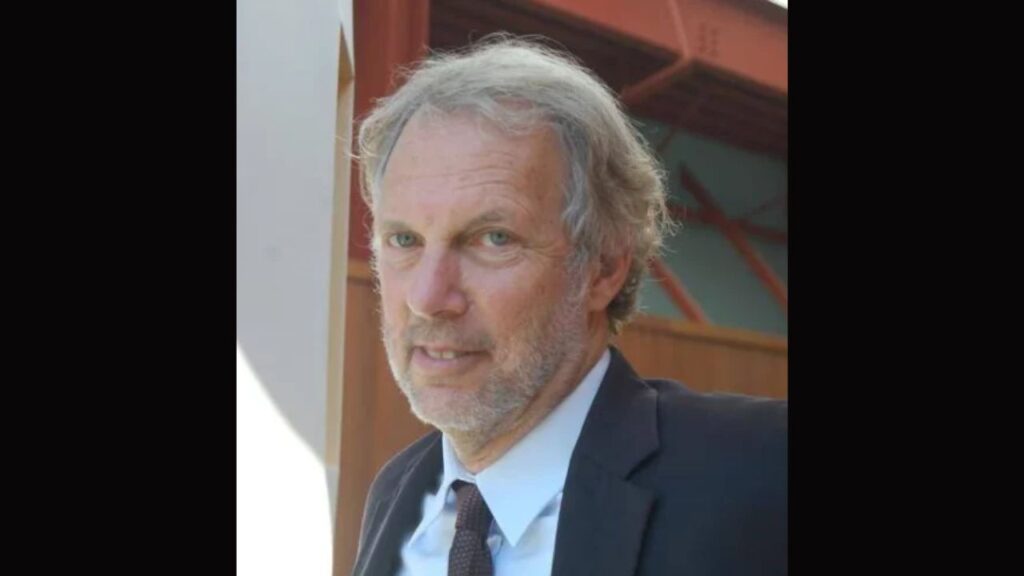
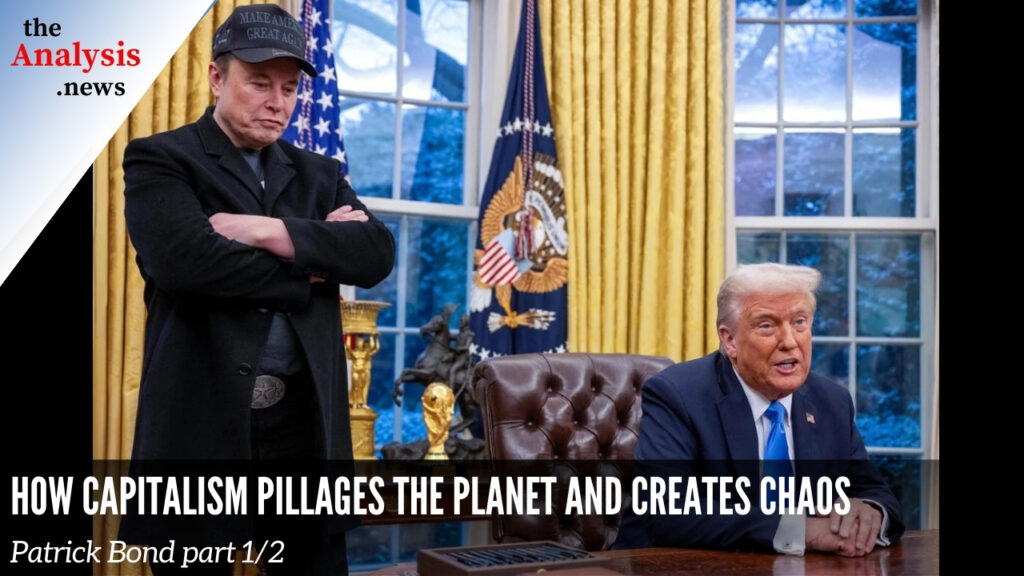







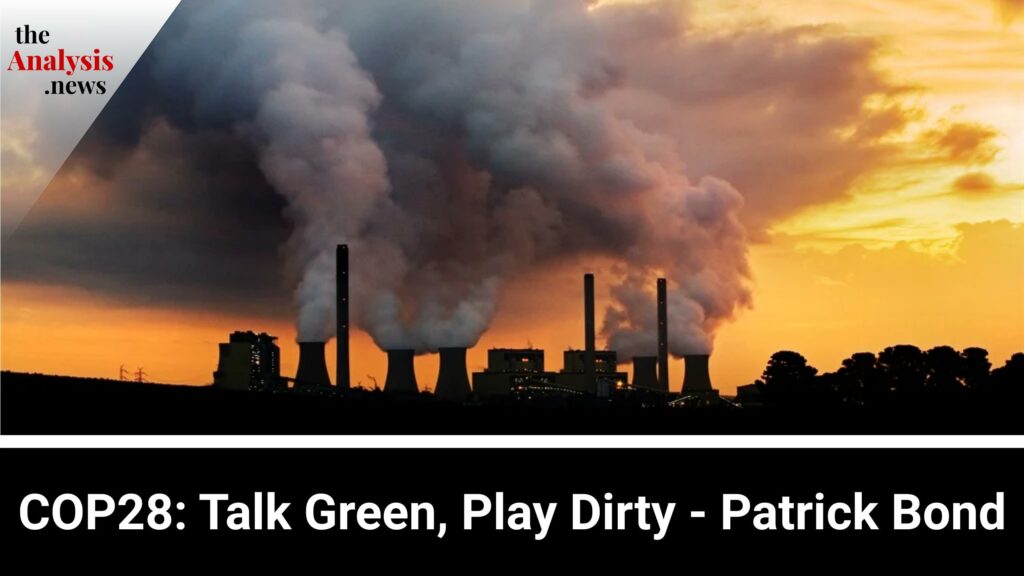
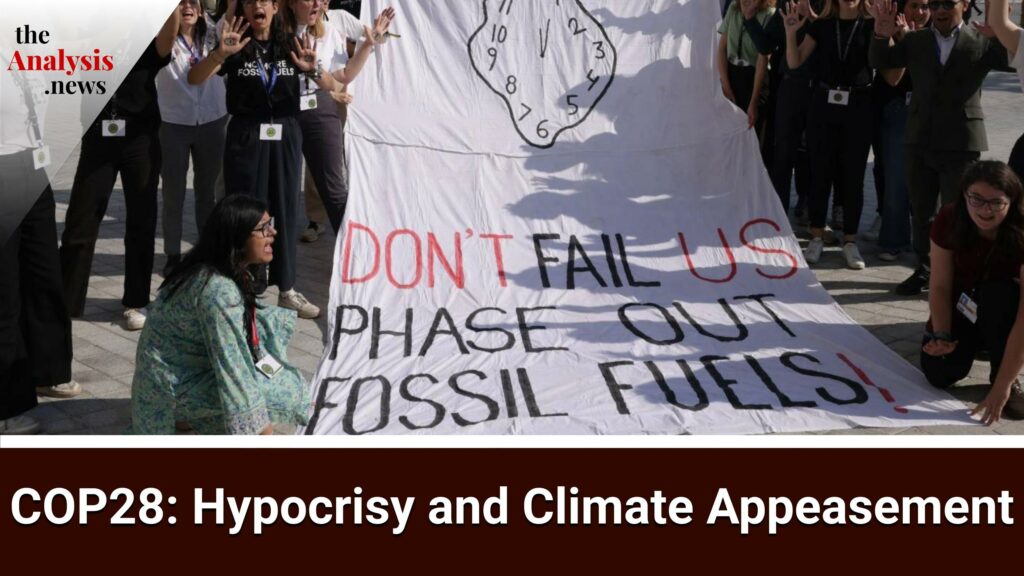
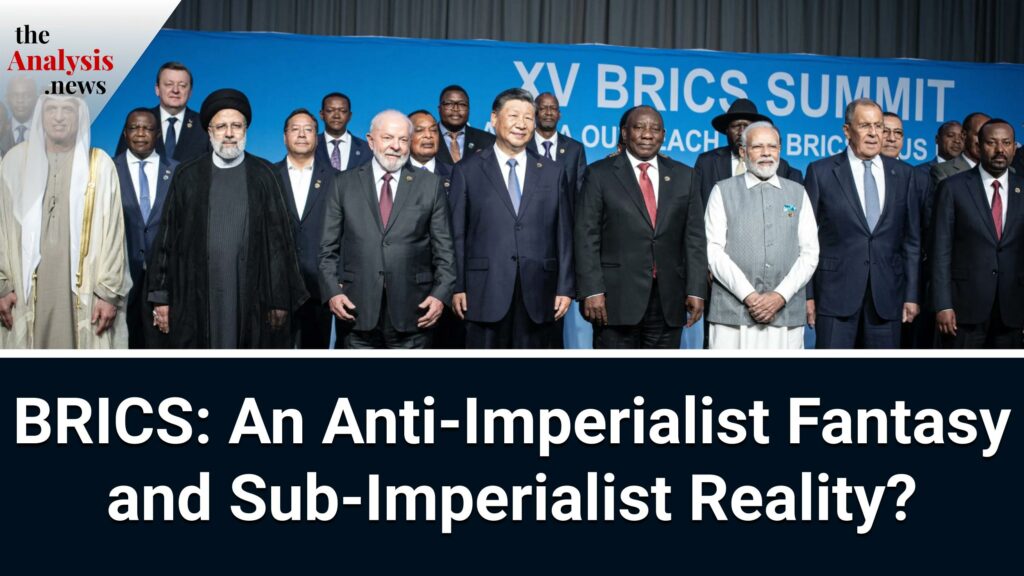
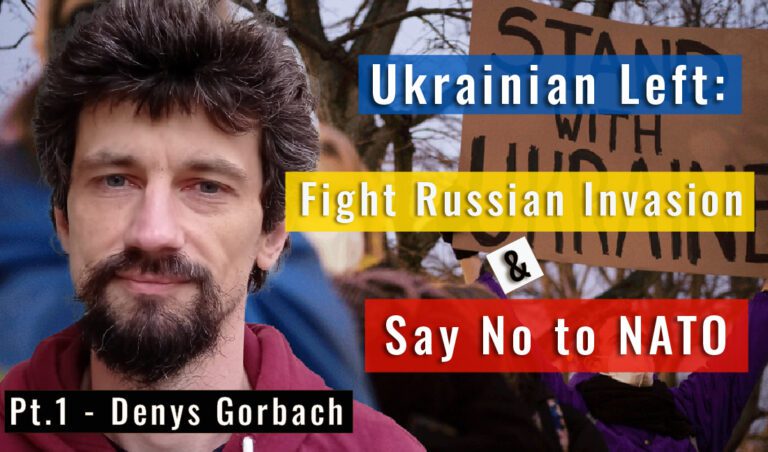

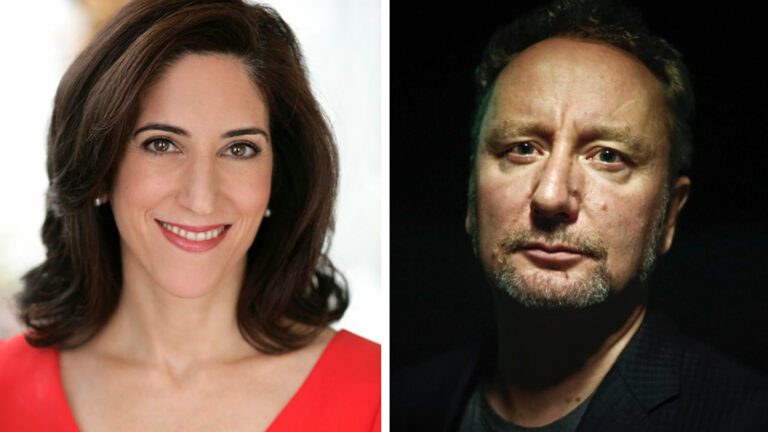


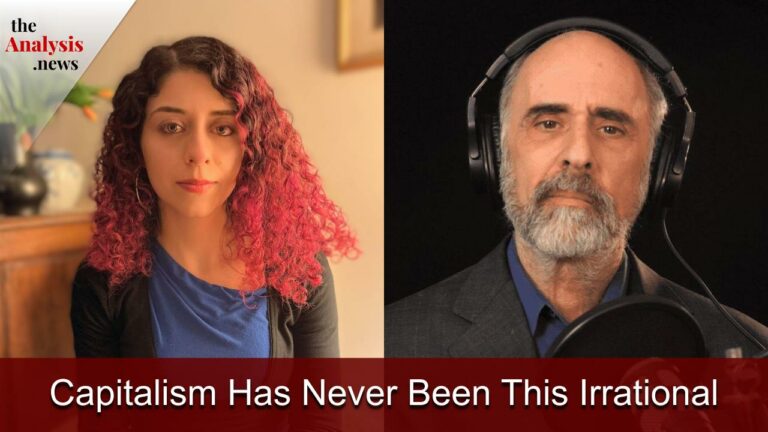
I agree that we have been a disaster. Tragically we’re taking the whole ecosystem and all the other living beings within it down with us. I think this predates capitalism by many millennia. Basically since we climbed out of the trees we have been destroying ecosystems. But the discovery of fossil fuels allowed us to accelerate our population and exploitation and destruction 1 million fold. Oh well. As the Buddha said, everything rises and passes away.
Humans have been a disaster for planet earth and other earths residents. Why are we so worried for humanity?
The Earth will have better future without humans, or just few humans. Capitalism turned humans to barbarians.
will you please let planet earth alone? Thank you.